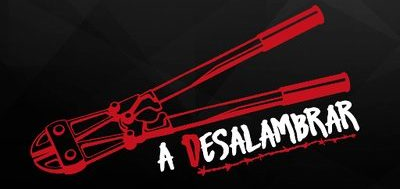 |
Basque Info
Basque Info podcast including the news and an interview with Paul Bilbao, director of the Basque language social organizations council Kontseilua: http://www.archive.org/
Basque Info 15/12/10
- Tribunal accepts Otegi promoted a peace proposal and acquits him and his co-defendants
- Gernika Agreement gathers international and local support
- Wikileaks exposes Spanish cruelty and fabrication of charges
- Another youth denounces being kidnapped
Tribunal accepts Otegi promoted a peace proposal and acquits him and his co-defendants
Last week the Spanish National Court acquitted Basque Pro-Independence Left leaders Arnaldo Otegi, Joseba Permach and Joseba Alvarez of “glorifying terrorism” during a political rally in Donostia/San Sebastian in 2004. During the event, attended by 15,000 people, the Basque Pro-Independence Left launched a proposal which would later lead to a negotiation process between ETA and the Spanish Government.
The special tribunal accepts now that the pro-independence leaders didn’t commit any ofence and quite the contrary that they defended the timeliness and the need for a dialogue and negotiation process for the peaceful and democratic resolution of the conflict.
According to the Pro-Independence Left the sentence weakens the arguments of those who oppose the resolution of the conflict and instead promote the criminalization campaign.
Immediately after the sentence many different political parties from the Basque Country, Catalonia and Ireland demanded the release of Arnaldo Otegi from jail. The campaign for his release is gaining momentum with various initiatives such as a march to the Logrono jail where he is kept, a new song and video called Free Otegi by Fermin Muguruza and others (watch it: http://www.youtube.com/watch?
Arnaldo Otegi was arrested in October 2010 along with several members of the Pro-Independence Left leadership when they were launching a crucial strategic internal debate. They were accused of reorganising Batasuna, banned by the Spanish authorities in 2002.
Gernika Agreement gathers international and local support
Last September dozens of Basque political and social organizations signed the so called Gernika Agreement (http://www.ezkerabertzalea.
Among those conditions are the implementation of all civil and political rights including the lifting of the bans on all pro-independence organizations, the repatriation of Basque political prisoners and the release of those who are ill and those who have already completed their sentences, along with the end of all forms of violence. Once this is achieved the signatories consider that a dialogue and negotiation process will be needed to resolve the roots of the conflict. The negotiation processed should be based on the so called Mitchel Principles which were applied during the Irish peace process.
Since the agreement was launched in September at the national level many other presentations have taken place at provincial and local levels and more support has been gathered. Last weekend the XV Congress of the International Union of Trade Unions also passed a motion of support.
The recently launched Basque Civil Rights Movement also mobilised last Friday across the Basque Country during Human Rights International Day. A statement was read at the rallies calling for the civil rights movement to be spread around the country; they also said they want to promote the human right to peace but a peace based on the respect for the rights of individuals and peoples as well as social justice.
Wikileaks exposes Spanish cruelty and fabrication of charges
Among the hundreds of thousands of documents recently revealed by Wikileaks there were some cables about the Basque conflict. In one of them the US ambassador in Spain speaks of a personal conversation with the Spanish Interior Minister where he admits they made up new charges against the now former Basque political prisoner Inaki de Juana in order to keep him in jail. The Minister also expressed his regret about that decision as it damaged the government afterwards.
Iñaki de Juana had to move to Ireland after achieving his release through three hunger strikes but had to go on the run again as the Spanish authorities continued persecuting him there.
Another of the cables said that thanks to the negotiation process between the Spanish authorities and ETA in 2005 and 2006, the social-democratic Spanish Prime Minister could easily win the elections in 2008 while the right wing would have to change its apocalyptic discourse.
Another Basque youth denounces being kidnapped
During a press conference last week one Basque youth from the Arratia Valley, near Bilbao denounced he had been kidnapped three times over the past 12 months. The last one happened last week when he was kidnapped by four masked men and taken to a forest where another four masked men were waiting for him. He was subjected to threats and beatings for one hour.
Local councillors and anti-repression activists supported him at the press conference and announced protests for the coming days. They demanded an end to these practices and the right of youth people to live in peace.
Five other pro-independence activists have been kidnapped over the past two years. One of them, former prisoner and ETA volunteer Jon Anza, disappeared for 11 months until he was found dead in the Toulouse morgue in France.
